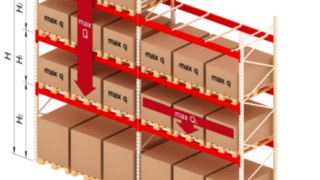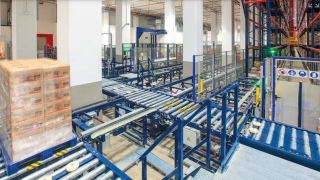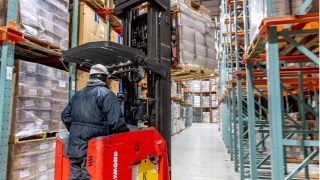Fulfillment Centers vs Warehouses in Belgium: Which Logistics Solution Fuels Your Growth?
In the Belgian ecommerce scene—where fast delivery meets demanding consumers—choosing between a fulfillment center and a warehouse can define your competitive edge. Whether you're a local seller in Antwerp or scaling across the EU, optimizing logistics to Belgian business norms is key.

Warehouses in Belgium: Stability for Bulk Operations
Keyword focus: warehouse Belgium, inventory storage, B2B logistics
Warehouses are a popular solution for Belgian B2B companies, especially in regions like Flanders and Wallonia where cross-border trade with the Netherlands, Germany, and France is seamless. They provide secure, cost-effective storage for manufacturers, wholesalers, and physical retailers.
Belgium-Specific Advantages:
-
Strategic location within the EU logistics corridor
-
Access to multimodal transport: ports (Antwerp), rail, and motorways
-
Ideal for non-perishable inventory and export preparation
Limitations:
-
Slower order fulfillment for D2C ecommerce
-
Requires in-house logistics staff or local partnerships
Warehouses shine in Belgium’s industrial zones, but fall short when faced with fast-paced online sales.
Fulfillment Centers in Belgium: Speed and Scalability for Ecommerce
Keyword focus: fulfillment Belgium, ecommerce shipping, order processing
With a rise in Belgian online shoppers (especially during seasonal peaks), fulfillment centers now offer localized solutions tailored to EU regulations and tax systems. These centers streamline packing, shipping, and returns—making them ideal for brands targeting consumers in Belgium and beyond.
Why Belgian Businesses Choose Fulfillment Centers:
-
Integration with Bol.com, Zalando, and Shopify
-
Quick access to markets in neighboring countries
-
Multilingual support (Dutch, French, German, English)
Challenges:
-
Costlier than traditional warehousing
-
Service contracts may favor larger volumes
Many Belgian SMEs use fulfillment services near Brussels or Antwerp to reduce delivery times and gain trust with local buyers who value next-day delivery.
Side-by-Side Comparison
| Feature | Warehouse (Belgium) | Fulfillment Center (Belgium) |
|---|---|---|
| Main Purpose | Long-term storage | Order fulfillment & shipping |
| Location Strategy | Industrial zones, near transport hubs | Near cities with ecommerce demand |
| EU Market Access | Excellent | Excellent |
| Ideal For | B2B, bulk stock | D2C, online sellers |
| Integration Level | Low | High (automated platforms) |
| Speed of Delivery | Slow | Fast |
What Works Best for Your Belgian Business?
Ask yourself:
-
Are you selling in bulk or shipping direct to consumers?
-
Do you target customers across the EU or focus on Belgium?
-
Is delivery speed a core part of your brand?
For traditional wholesale or production-focused businesses, Belgian warehouses near transport hubs like Zeebrugge or Liège offer strategic advantages.
For ecommerce brands, fulfillment centers in Brussels or Mechelen connect you with customers expecting 24–48 hour delivery and seamless returns.
Belgian Hybrid Strategy: Blend the Best of Both Worlds
Many Belgian companies now combine warehousing for bulk goods with fulfillment services for active products. This enables:
-
Lower storage costs
-
Faster delivery for hot-selling items
-
Easier expansion across the EU
Conclusion: Logistics that Match Belgium’s Dynamism
Belgium’s central EU location and consumer sophistication demand smart logistics. Fulfillment centers bring speed and modern ecommerce integration, while warehouses provide stability and bulk storage. Align your strategy with your customers’ expectations—and the local infrastructure—and your growth in Belgium will be anything but average.
_0x70_d59.png)



